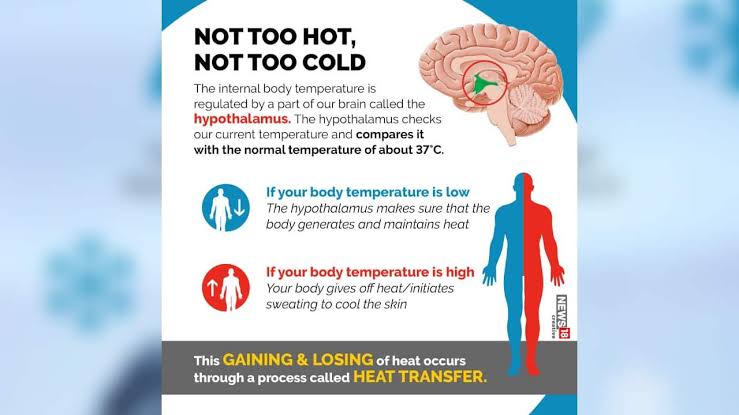Do you always wear heavy clothes while others feel comfortable about the weather? If the answer is yes, then you may have one of the signs of hypothyroidism – that is, not producing enough thyroid hormone. Although hypothyroidism affects both sexes, it is a very common condition and is not diagnosed among adult and elderly women. Other signs of hypothyroidism include: weight gain, dry skin, a hoarse voice, and constipation. Excessive sensitivity to cold may also indicate a hormonal imbalance resulting from an underactive pituitary gland, which is a dysfunction of the pituitary gland – the main gland in the endocrine system. In addition to excessive sensitivity to cold, people with an underactive pituitary gland may suffer from exhaustion, fatigue, fertility problems, and low blood pressure. Sensitivity to cold may also indicate another hormone-related imbalance known as hypothalamic dysfunction, which affects the brain’s hypothalamus. The hypothalamic gland is the gland that helps regulate body temperature, appetite, weight, and emotions. A defect in this gland may indicate a tumor, infection, head injury, or malnutrition. Feeling cold for a long time may indicate anemia, as about 20% of people with an iron deficiency suffer from excessive sensitivity to cold. Excessive sensitivity to cold may, in rare cases, be a warning sign of bone cancer or leukemia (cancer of the blood and marrow). If you feel the cold for a long time in addition to a feeling of stiffness and pain, you may be suffering from cystic myalgia, which is a condition that affects the muscles and bones and is more common among women, although it is It does not pose a threat to a person’s life, but it may cause disability. Important fact: The elderly often feel cold; So they avoid fans and air conditioners; Therefore, they are highly susceptible to heat stroke and heart attacks.
Categories
HEALTH
Sensation of cold throughout the body: causes

